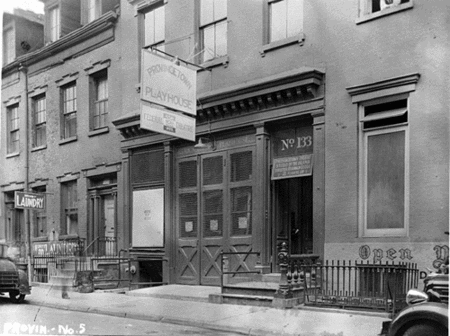

Susan Glaspell,
or The Forgotten Feminist.
The Cornerstone reading series begins next week, and the first offering is basically sold out (insert cheers and applause). We are beginning with two plays by Susan Glaspell; her most famous play Trifles and a relatively unknown gem, The People. Trifles has long been studied in ‘American Theater’ classrooms across the US of A as a ground breaking achievement in playwriting. Having read over the play multiple times in the last month I can tell you that it holds up beautifully 99 years later, but it is hard to think of it as ground-breaking. That is, until you familiarize yourself with the America of 1916.
The two most essential characters in this murder mystery play are the murderer, Minnie, and the murdered, John Wright. And before you think that I’ve spoiled the plot for you, you’re wrong. These two quintessential characters are never seen on
stage. This in itself was a bold move for a then unknown Ms. Glaspell. To push the envelope further, Glaspell put the question of the motive of Minnie as well as the entire moral compass of the play in the hands of the two female characters, Mrs. Hale and Mrs. Peters, while the male characters seem not to put much thought into the matter and are rather cold and reserved. This was unheard of in 1916, but it was inevitable that American drama would soon wake up to the power of women. The political landscape was changing rapidly, at this point only women in Colorado, Utah, Idaho and Wyoming had the right to vote. 1916 was also the year that The National Woman’s Party was formed.
The National Woman’s Party was the first women’s suffrage party to picket the White House. Party leader Alice Paul spent most of 1917 leading the protest; in 1918 president Wilson changed his political position and became a supporter of the enfranchisement of women. Ms. Paul was not the only woman speaking the truth in 1917, another can be found in the character of ‘The Woman from Idaho’ in Ms. Glaspell’s The People. The People centers around a failing news publication in New York City, and its Editor-in-Chief, Edward Willis. The closing of the publication seems inevitable, as Mr. Willis is refusing to listen to anyone who will try and steer him away from his decision, in fact the only person he will listen to is an unnamed female traveler from Idaho (coincidentally one of the only states at the time where women could vote).


The People and Trifles were both first performed at the Provincetown Playhouse, which was founded by Ms. Glaspell and her husband George Cram Cook. It is believed that The People was based on the personalities and problems that faced the young initiative. The Provincetown Players was the first theater company to solely produce works of American playwrights and set in motion the movement of ‘modern theater’ as we know it in the United States. Its popularity was unstoppable and eventually relocated from its original location in Cape Cod, to New York City’s Greenwich Village. Among the artists to work with the theater company were Eugene O’Neill, Edna St. Vincent Millay, Djuna Barnes and Bette Davis.
The New York location of the Provincetown Playhouse was 133 MacDougal Street. In 2008 New York University had plans to tear down the building to make way for an expansion of their law school. However, the New York State Office of Parks, Recreation and Historic Preservation deemed the building eligible for listing on the State and National registers of Historic Places, in response to a request from the Greenwich Village Society for Historic Preservation. NYU agreed to preserve a mere six percent of a building that once housed the pioneers of American theater. To this day the building houses NYU’s Steinhardt program.
It is my hope that when a young lady in the NYU Steinhardt program steps on that once famous stage to perform her scene from ‘In the Next Room’ or ‘The Heidi Chronicles’ at senior showcase, she knows who has come before her. I hope she knows that before Sarah Ruhl and Wendy Wasserstein came a woman who was not afraid to let American theater audiences hear the intellect and the power of women. Her name was Susan Glaspell, and I for one am thrilled that we here at American Bard are celebrating her on the 23rd. I hope this is only the beginning of unearthing this beautiful playwright.
- Jack Herholdt
Dramaturge
Subscribe to our Newsletter
The American Bard Theater Company is a not-for-profit, tax-exempt, 501(c)(3) organization serving the greater New York community. Contributions made to the American Bard Theater are tax-deductible to the extent allowed by law.
